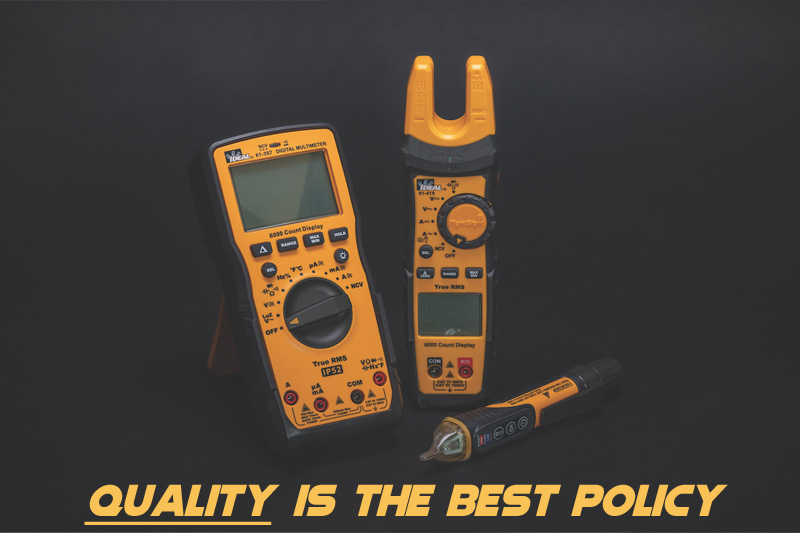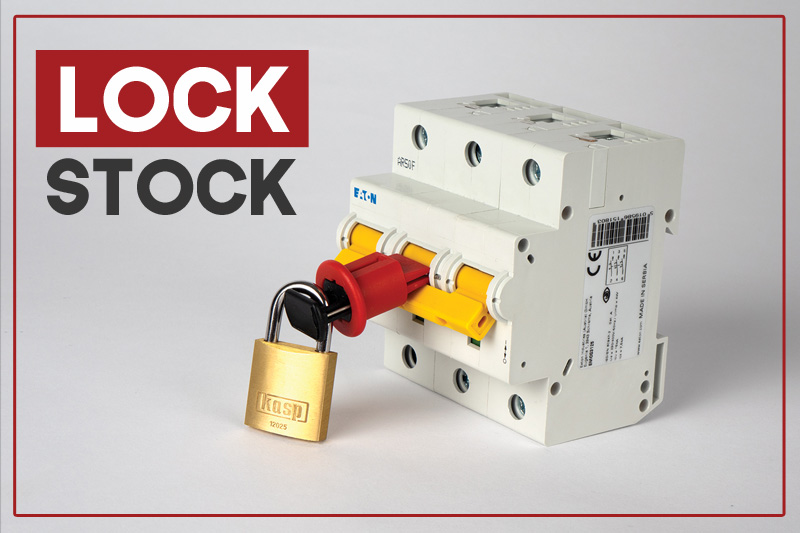As a manufacturer, if we make a product that causes injury or damage, we are responsible – that is why legitimate manufacturers carry product liability insurance. Of course, the majority strive to ensure that their products comply with all safety requirements and meet standards laid down by the relevant bodies, which keeps a lot of talented people employed in the industry and certainly impacts on the time taken to get new products onto the market.
However, just because hopefully the majority of products sold by wholesalers in the UK meet all the safety criteria they should, unfortunately this doesn’t always translate into what can be obtained either via wholesalers or indeed, online. What are some of the challenges and how can we work together to ensure professionals in the sector are offered only compliant products?
Margin
Both in large wholesale businesses and smaller independent ones, a lot rests on the shoulders of the buyers. Here they face some dilemmas – they have to source products which customers need and also have to make a margin for their businesses. Also there is pressure from customers to be price-competitive, if not, business is taken elsewhere if there is a perception that a similar product can be obtained more cheaply.
There is also the human factor of habit to consider – it is often easier to continue purchasing from ‘X’ manufacturer or ‘X’ manufacturer’s representative because there is an established relationship stretching back, sometimes, for years. Another factor is possibly lack of detailed knowledge of that particular product sector. The average wholesaler wouldn’t necessarily appreciate that a component he is selling doesn’t meet regulations – this would mean he would have to be aware of all the regulations in the 18th edition – clearly a near-impossible task. But unfortunately, ignoring this factor can unwittingly lead to selecting non-compliant products.
There should be a responsibility on the wholesaler to ensure they are selling a product that is safe and compliant. It is the responsibility of the manufacturer to supply sufficient information for the wholesaler to make a considered purchasing decision. The wholesaler can only do so much. They cannot see every salesperson that comes along. The salesperson only says what the manufacturer tells him or her. Well–known manufacturers are assumed to sell items that comply with the regulations. Unless the wholesaler reads the technical data on every single product, how can he know? Responsibility is with the manufacturer to produce compliant products, but some must rest with the wholesaler on selection (if a wholesaler sells a product, it is assumed that it complies with regulations) and ultimately, of course, on installation, with the professional contractor.
Compliance headache
Let’s take an example. Typically, a downlight. To wire into it, the installer needs to have a connector, either screwless or a screw terminal block with a strain relief that complies with the EN pull wire test, and ensure that the cover cap can only be removed using a tool, be it a screwdriver or something else. That is what the 18th edition lays down. A quick, pluggable connection should not be accessible to the wires or any live part without the use once again, of a tool, e.g. a screwdriver. The junction box should be maintenance free. What does that really mean? Maintenance free is only truly maintenance free (and therefore compliant) if the whole product is maintenance free. The wholesaler has a responsibility to ensure that the product is maintenance free, but he does not know what the installer is going to use or indeed not use during installation. And it is the electrician’s responsibility to comply with 18th edition and provide a safe installation. Having purchased connectors and connection boxes with floating screws and grips that can easily be lost and therefore not used, is a step on the path to the final installation almost certainly not conforming to regulations.
Surely though, this would be picked up by inspectors? Again, taking the lighting installation as an example – is an inspector going to look at all the connectors in the ceiling to make sure that every downlight is wired into a junction box or connector which is maintenance-free? Unlikely. Much more likely is that he/she will go to the fuse board and make sure there are enough circuits and breakers etc. and also check whether the switches are approved.
So what can be done?
Firstly, it’s important to state that just because some products are less expensive, that doesn’t necessarily mean they are no good. What it is about is value for money. And it is about the trust between the manufacturer and the wholesaler. It is the duty of manufacturers to produce compliant products at a price point acceptable to the wholesale trade and on which a reasonable margin can be made by each party.
Another aspect of this is that there isn’t a level playing field. In a wholesale trade comprising independents, national wholesalers and big buying groups, the latter have a massive say. Some can be dominant – is this right? This can force manufacturers to give the buying groups discounts or possibly be excluded, as well as disadvantaging those wholesalers not in buying groups. The present reality is that the wholesale trade can be very cut throat and price-driven – too many people are selling products at discounted prices. As a manufacturer, we value our product and manufacturers should look to Apple in the consumer technology space for an example: you can’t buy it for less.
A further danger is purchasing items of unknown or untried origin from the internet. It is perfectly possible to buy something injection moulded from ABS that looks very similar to a branded product produced by a reputable manufacturer, but the material used in its manufacture may be over 50% recycled, which puts it outside the original manufacturer’s specification, so it no longer complies and also loses essential properties, possibly including its flame retardance and impact resistance. There is no way a buyer can tell this, but extremely cheap unbranded products should always be viewed with a healthy degree of scepticism.
A key to change and to guarding against selling non-compliant products is education and training, so the trade understand the differences between products. An excellent source of knowledge is eFIXX, a national training organisation for the electrical trade. On its online forum, is possible for manufacturers to showcase products with training and demonstrate how to use them in applications. Another possibility is to go to an event by eFIXX held by a wholesaler then the contractor will come to that event and can talk to the manufacturer or distributor. These Live Feed events are usually held usually in the evenings, 40 are being hosted this year alone and are free to attend. Another training source is the NICEIC Tech Talks, for which there is a small charge.
All Hylec products are tested by respected independent laboratories and are either approved by the relevant bodies or conform to the relevant standards.
For further information
To see more of the compliant products available from Hylec, visit: www.hylec-apl.com







